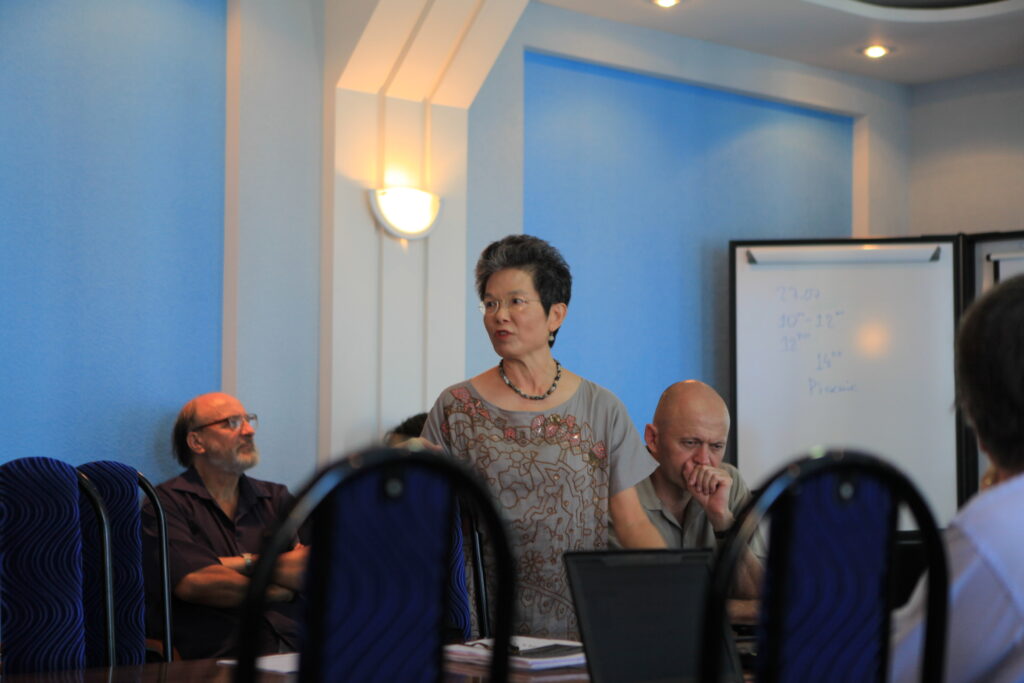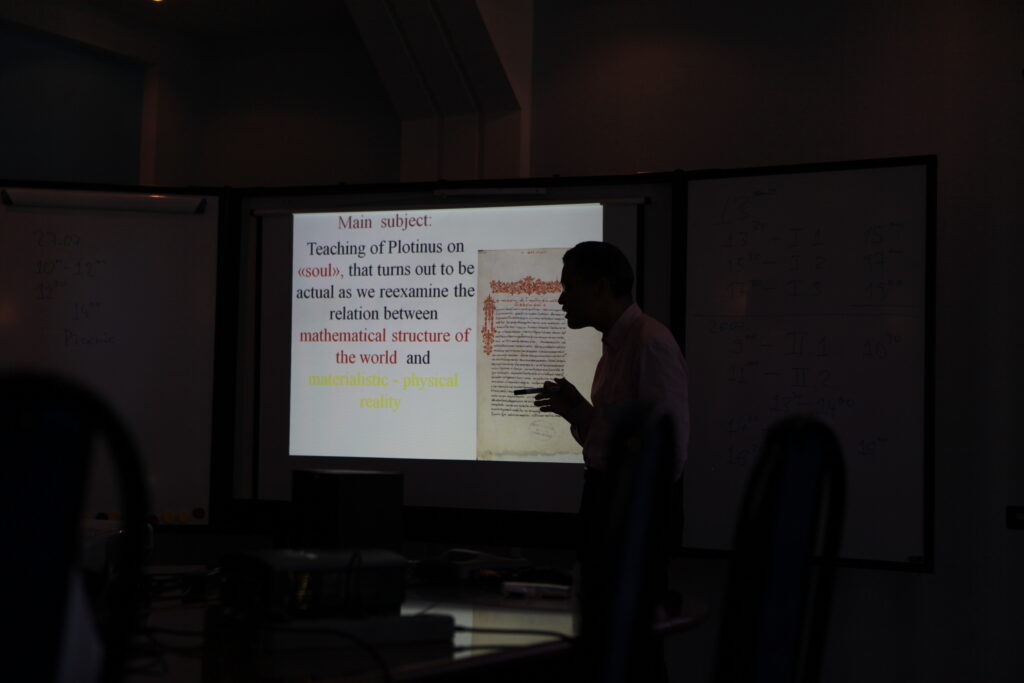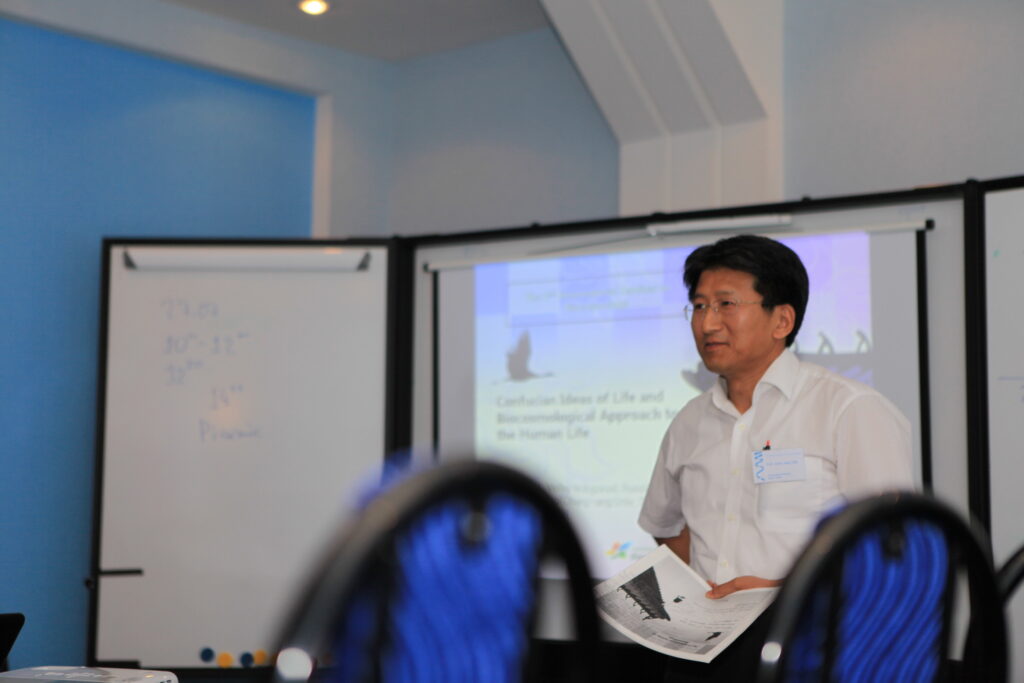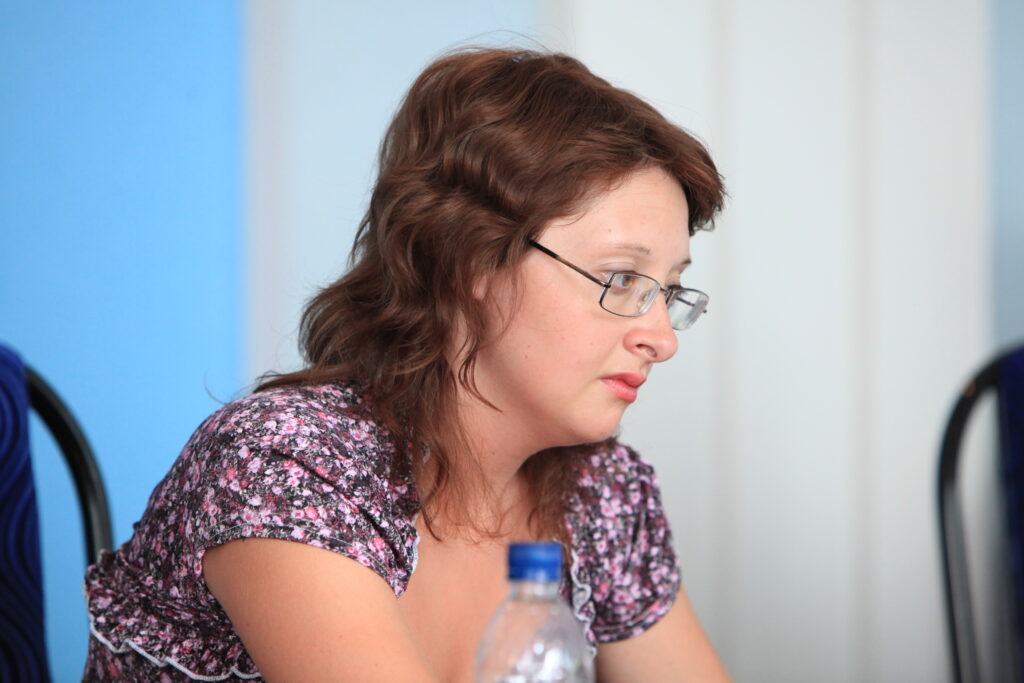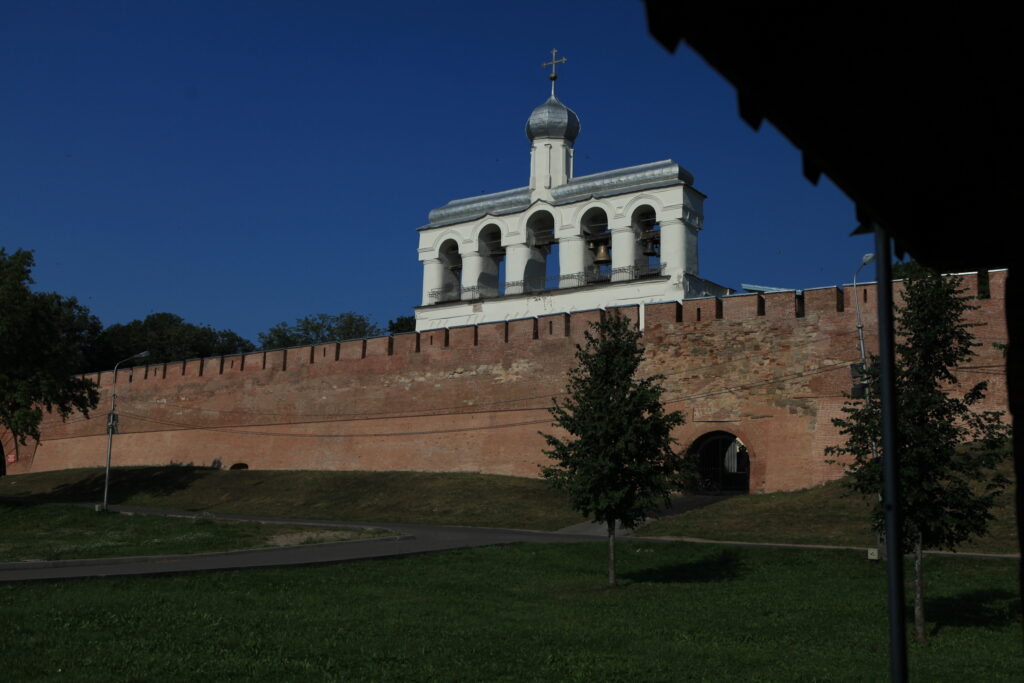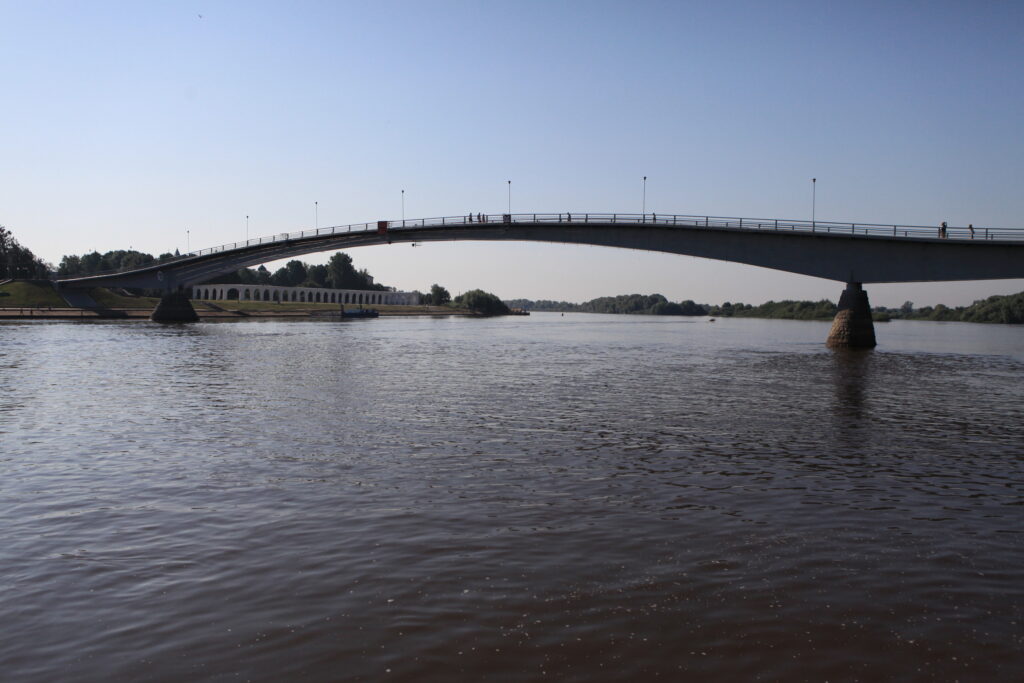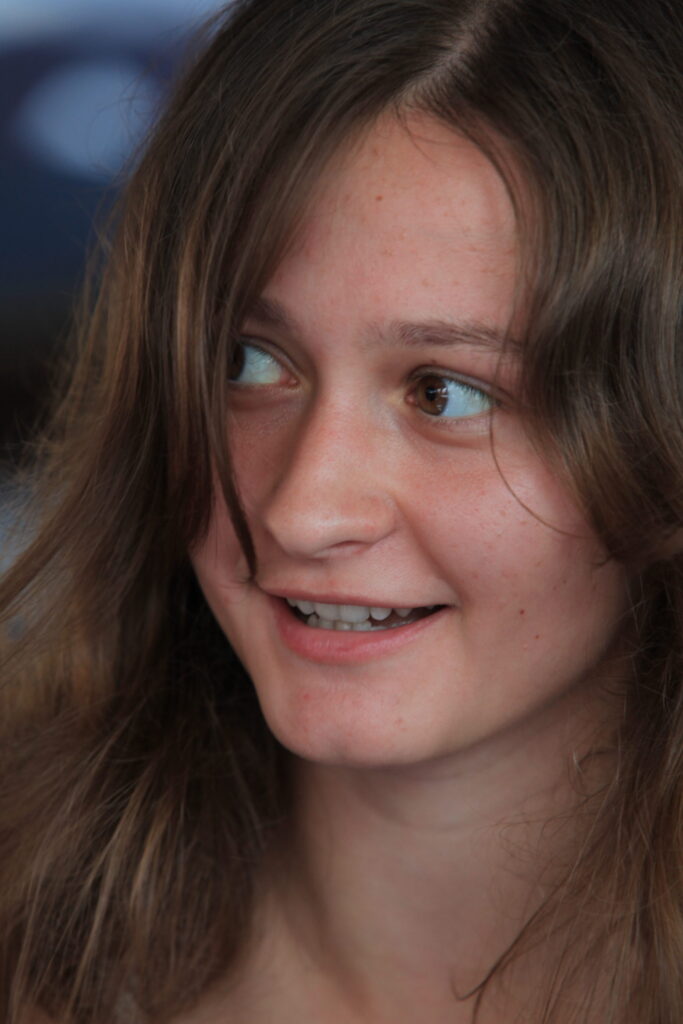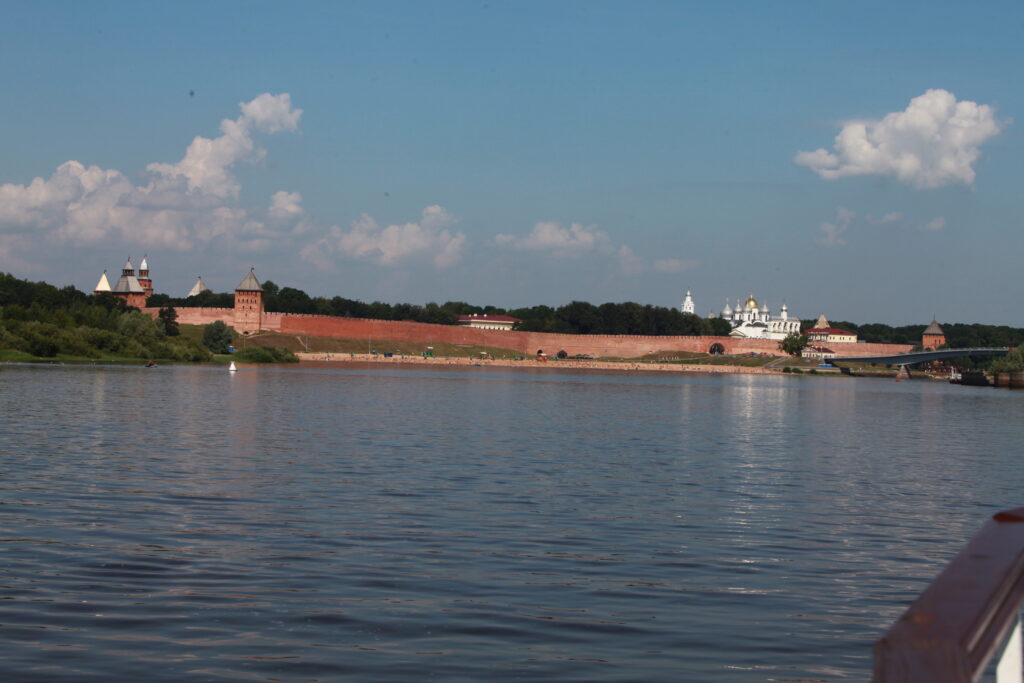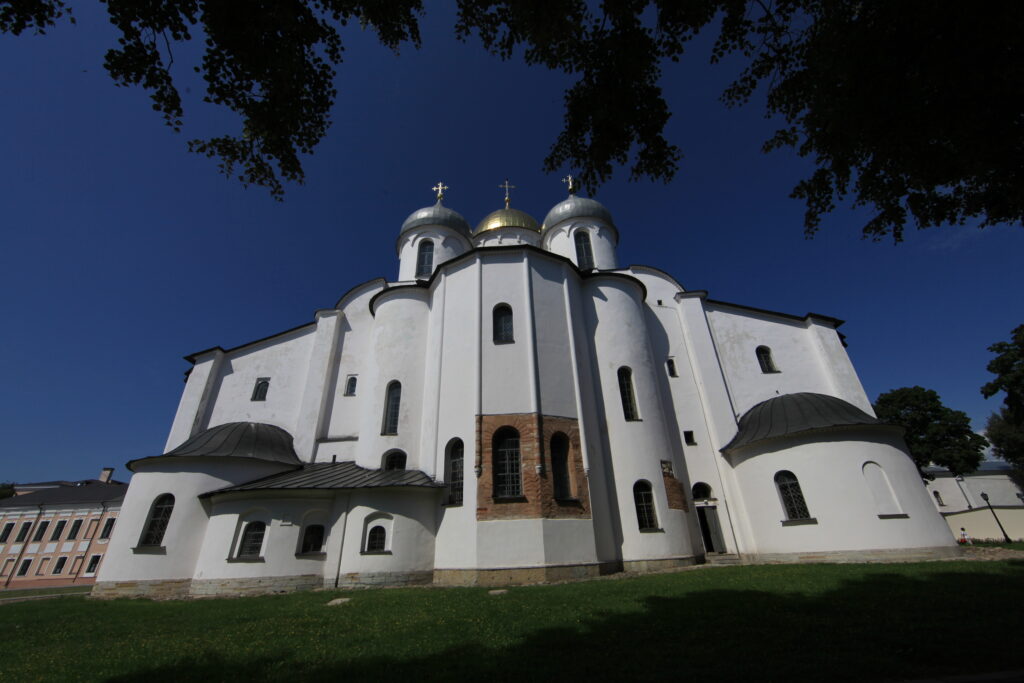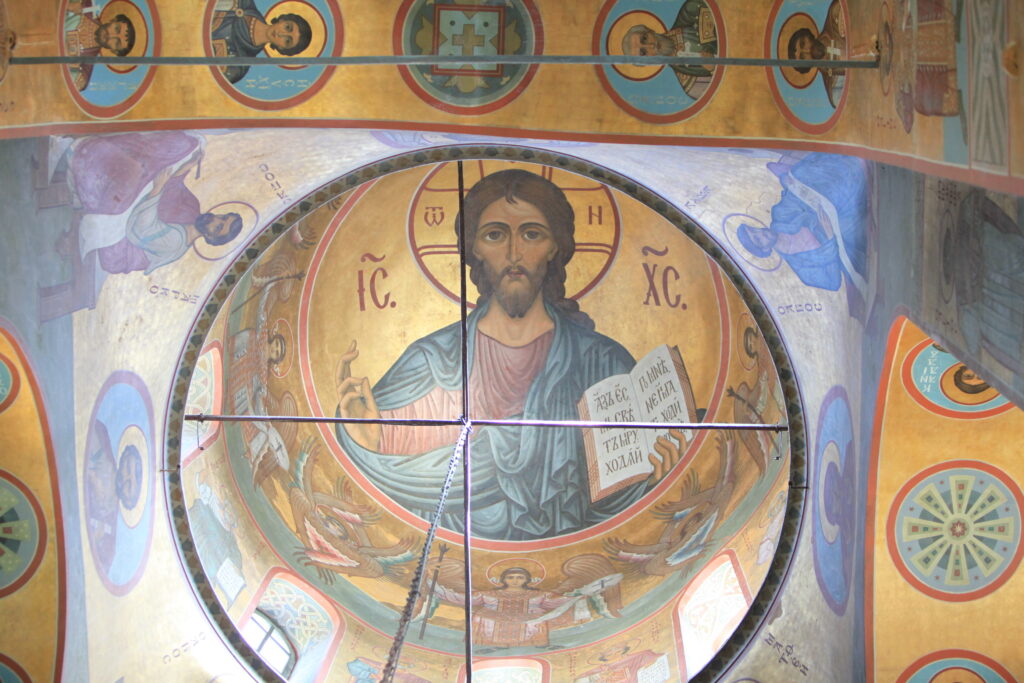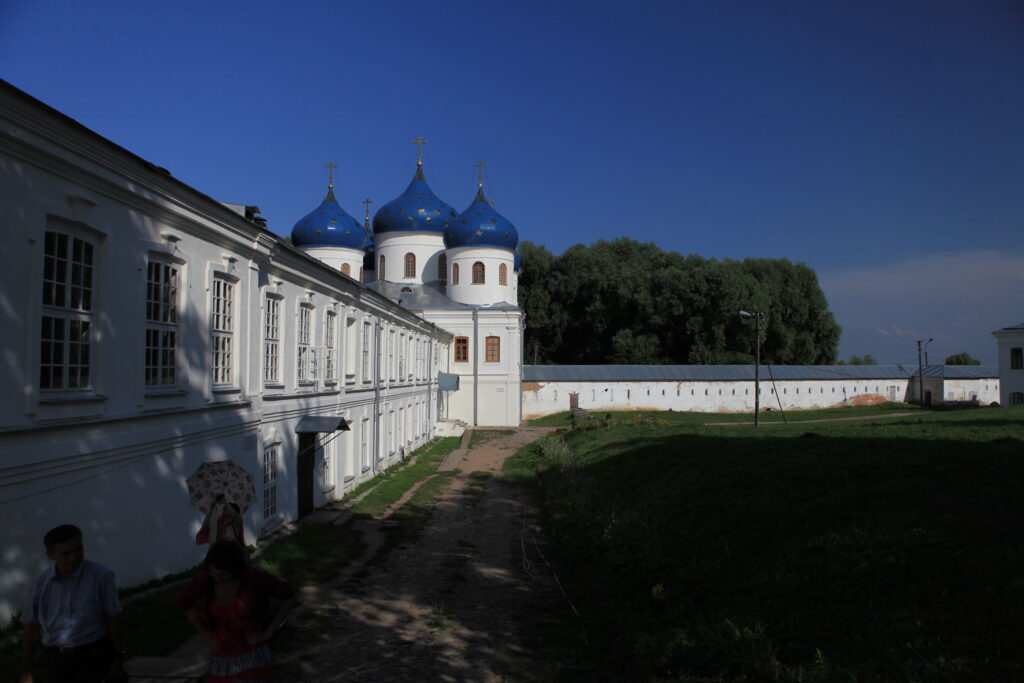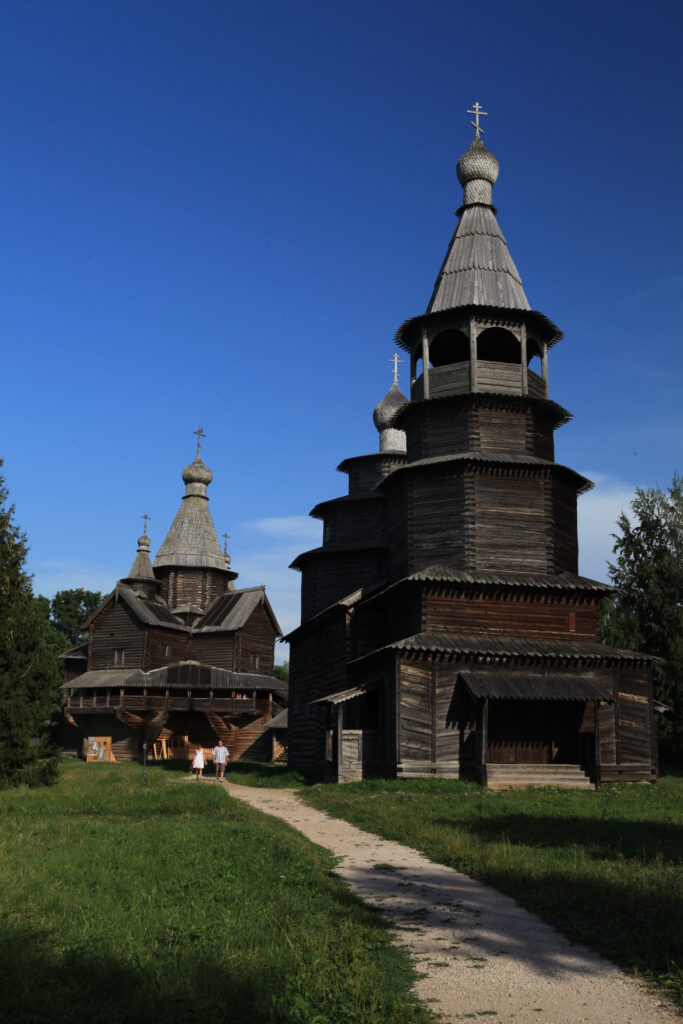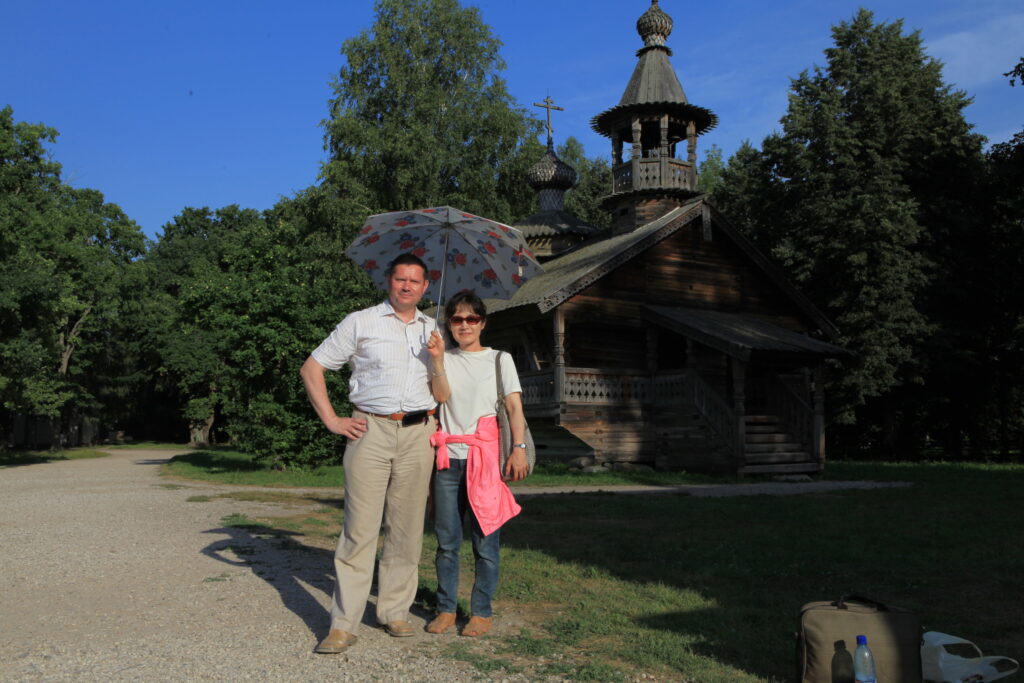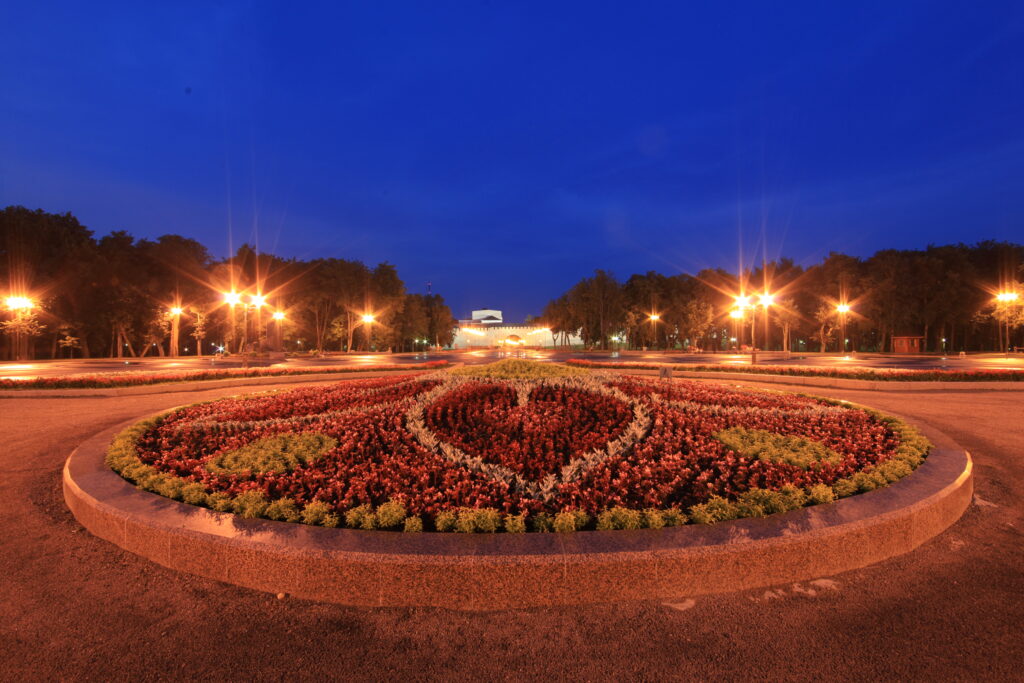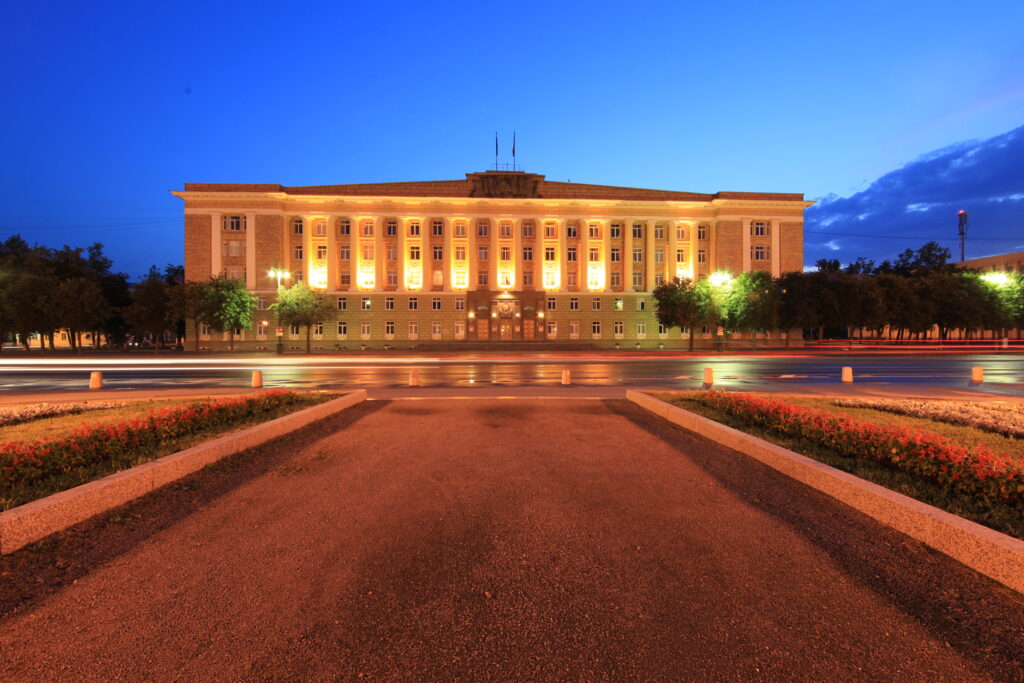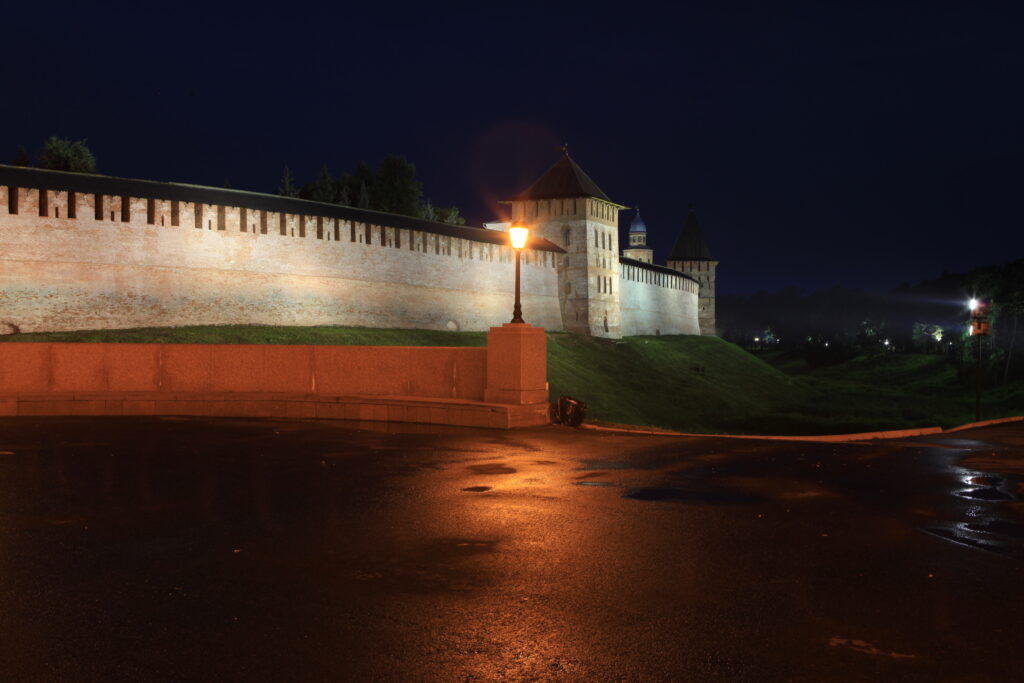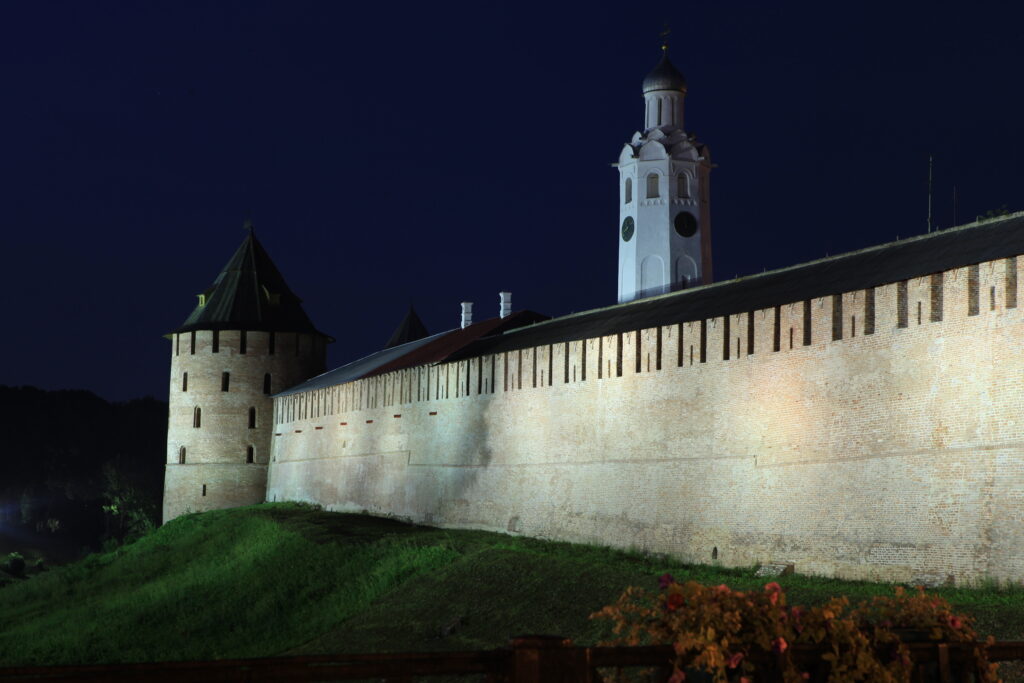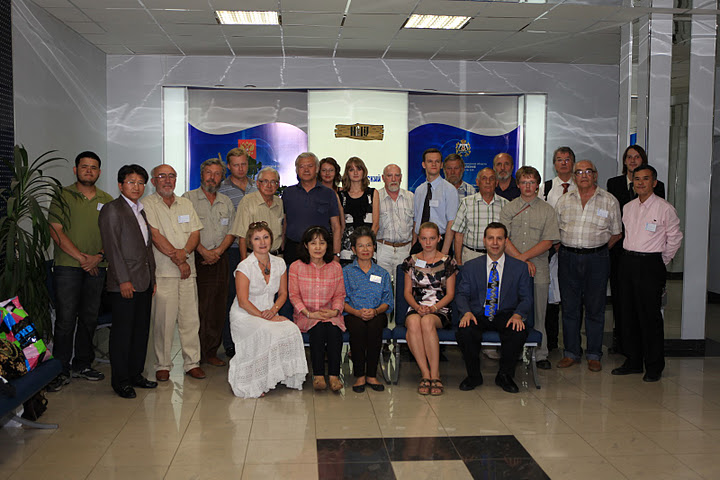The Second International seminar on Biocosmology is planned to be held on the 24-27-th of July, 2011, in Veliky Novgorod, Russia.
As compared with the First International seminar on Biocosmology, three substantial modifications are introduced.
First: the topic of the Seminar is approved — “Biocosmological evolutionary cyclic triadicity — triunity and three-dimensionality of scientific methodologies”.
The introduction of a specific theme for the Seminar aims to turn scholarly debates into concrete-substantive and meaningful discussions, and thus, in the outcome, - to achieve the level of already tangible research problems and directions for the Biocosmological development. A key point for the topic of Triadicity is just the three-dimensionality of the real world’s existence and evolution, and, accordingly, — the three-dimensionality of the real (and effective) means of the world’s scientific research. Herein, the article with the title "All-Embracing (Triune) Medicine of the Individual's Health: A Biocosmological Perspective" (see Annex 1) may be of some use. It was published in the «Journal of Futures Studies» and is available online — http://www.jfs.tku.edu.tw/sarticles.html. Here the author attempted to present precisely a systematic analysis of the Triadicity issue with respect to the real world and the three-dimensionality of its scientific exploration. Thus, this article can be helpful to any colleague who intends to define her/his position on the issue of Triadicity and her/his willingness to participate in its discussion.
Second: the organizational form of the Seminar will follow the principle of conducting panels or discussion groups (organizing discussions of actual issues on the basis of pre-planned and prepared presentations); to this effect composing each group of 5 members: chairman, 3 speakers and a discussant (a colleague who is competent in the matter under discussion, and who critically summarizes the given presentations). For his part, chairman of a panel carries out the procedure rules (including time-limit – strictly 90 minutes for each panel) and, jointly with the discussant, – manage the course of the discussion on a given topic. Each participant can be the organizer of the panel (of her/his participation), as well as each member of the Organizing Committee can execute the role of organizer (regardless of personal involvement).
In this regard, with respect to the Second scientific meeting on Biocosmology, – a significant point is that this form of organization does not provide the primary receiving and selection of abstracts from the Seminar participants. Instead, the International Organizing Committee will realize the selection of applications for the holding of panels; which organizers, in turn, primarily will accomplish the selection and organization of their panel’s participants (chairmen, presenters, discussants) – for the discussion of the topical issue. In other words, this time the primary selection of participants is entrusted to the organizers of the Seminar panels. In turn, on the side of colleagues who wish to participate in the Seminar - we encourage them to determine for themselves the research direction and its head (see the functional structure of the Organizing Committee), i.e. – to determine the area (direction) of exploration that mostly corresponds to the proposed matter of discussion), – and further to contact directly with the chosen organizer (member of the Organizing Committee), by submitting to her/him the prepared proposal (abstract).
The third significant point reflects our strategy of the essentially international cooperation in the course of the Biocosmological project. This is the fundamental principle of the Biocosmological Association – Biocosmology is meaningful exclusively on a worldwide scale (in the universal and all-embracing consideration of the global organic development); thus, – Biocosmological project becomes possible exclusively through an effective international cooperation. Therefore, as provided by this need, – the structure of organized panels should include representatives of two or more countries (otherwise, the application will not be accepted for review).
Deadline for the panel proposals expires on February 1, 2011.
The contact e-mail for the submission of proposals – Biocosmology.VelikyNovgorod.2011 @ gmail.com (copy should be sent to the address – Konstantin.Khrutsky @ novsu.ru )
General guidelines:
- All proposals have to be scholarly in nature;
- All proposals will have to be approved by the International Organizing Committee of the Seminar (Organizing Committee);
- Each proposal for the panel normally includes a chair, up to three speakers and a discussant. The proposal should include: the title of the panel; name, rank/position and academic affiliation of the participants, contact addresses; and, if possible at this stage, titles of the speakers’ presentations;
- Panels must be international in composition. Panels with participants from only one country will not be accepted;
- The allotted time for a panel is strictly 90 minutes. It is highly recommended that each speaker be allowed no more than 15-20 minutes for her or his presentation;
- The consent of all panel participants should be obtained before a panel is proposed. No one may be proposed without his or her knowledge and consent;
- Proposals for individual papers – not included in a proposal for a panel – may be included in the Congress program by the decision of the Organizing Committee. Such papers may be presented in special sessions or included in other panels (Organizing Committee participates in the composition of panels). In individual cases, the inclusion of such presentation into the other panel means that the chairman accords to presenter a 5 minutes reply from the place;
- All paper proposals should include a preliminary abstract (from half-page to 2 pages);
- The official languages of the Seminar are English and Russian.
Co-Chairs
- Victor R. WEBER – Professor, Doctor of medical sciences, Corresponding member of the Russian Academy of medical sciences; Rector of the Novgorod State University after Yaroslav-the-Wise (NovSU), Veliky Novgorod;
- Eugene A. BONDARENKO – Professor, Doctor of technical sciences, Pro-Rector on Science of the Novgorod State University after Yaroslav-the-Wise (NovSU), Veliky Novgorod;
- Viktor K. KOZLOV – President of the Biocosmological Association; Professor, Doctor of medical sciences, Director of the Institute of High Medical Technologies at the St.-Petersburg State University, St.-Petersburg;
- Kwon Jong YOO – Professor, Ph. D., Dean of the College of Humanities, Chung-ang University, Seoul, Korea;
- Sergey N. GRINCHENKO – Professor, Doctor of technical sciences, Leading researcher at the Institute of Informatics Problems of the Russian Academy of Sciences, Moscow;
- Anatoliy V. KARPOV – Professor, Doctor of medical sciences, Novgorod State University after Yaroslav-the-Wise, Veliky Novgorod;
- Dennis V. KOVALENKO – Ph.D., Director of the Scientific-Research Centre at the NovSU; Veliky Novgorod;
- Konstantin S. KHROUTSKI – Ph.D., Docent at the Institute of Medical Education, NovSU; Veliky Novgorod.
The Organizing Committee
- Anthropological cosmos – Ivan Kaltchev : Professor, St. Clement of Ohrid University of Sofia, President of the Association of philosophers from South-Eastern Europe, Sofia, Bulgaria;
- Complex sciences – Cristian Suteanu : Ph.D., Associate Professor at the Geography Department and Environmental Studies Program, Saint Mary’s University, Halifax, Canada;
- Genetics and biophysics – Boris F. Chadov : Doctor of biological sciences, Academician of the Russian Academy of Natural Sciences, Institute of Cytology and Genetics, The Siberian Division of the Russian Academy of Sciences, Novosibirsk;
- Health management and policy – Stephen Modell : Dr., PhD, Director of the Center for Public Health and Community Genomics; University of Michigan; Ann Arbor, MI, U.S.A.;
- Immunology – Georgiy S. Arkhipov: Professor, Doctor of medical sciences, Novgorod State University after Yaroslav-the-Wise, Veliky Novgorod;
- Informatics-cybernetic modeling – Sergey N. Grinchenko: Professor, Doctor of technical sciences, Leading researcher at the Institute of Informatics Problems of the Russian Academy of Sciences, Moscow;
- Integrative medicine – Peter Heusser : Professor, MD MME, Head, Center for Integrative Medicine, Gerhard Kienle Chair for Theory of Medicine, Integrative and Anthroposophic Medicine, Witten/Herdecke University, Germany;
- Integrative science (for the construction of a sustainable society) – Kayo Uejima : Doctoral candidate at the Kumamoto University; Kumamoto, Japan;
- Mathematics and Cosmos – Susumu Tanabe : Professor, Departments of Mathematics at the Galatasaray University, Istanbul (Turkey);
- Medicine and Society – Anatoliy V. Karpov : Professor, Doctor of medical sciences, Novgorod State University after Yaroslav-the-Wise, Veliky Novgorod;
- Mind Science (integration in the specific form of mind philosophy, cultural psychology, cognitive science, artificial intelligence, pedagogy, etc.) – Kwon Jong Yoo : Professor, Ph. D., Chung-ang University, Seoul, Korea;
- System medicine – Viktor K. Kozlov : President of the Biocosmological Association; Professor, Doctor of medical sciences, Director of the Institute of High Medical Technologies at the St.-Petersburg State University, St.-Petersburg;
- Theory and practice of public administration – Viktor I. Franchuk : Professor, Doctor of sociological sciences, Vice-president of the International Academy of Organizational Sciences, Moscow.
Final Seminar Programme
PRELIMINARY PROGRAM OF THE SECOND INTERNATIONAL SEMINAR ON BIOCOSMOLOGY
CONFERENCE VENUE
The Second International seminar on Biocosmology is planned to be held in the conference hall of the main building of the Novgorod State University (B. St. Petersburgskaya str. 41), during the first day of the conference (July 25), including registration and the opening ceremony of the Seminar, and in the Competence center of the NovSU (B.S.-Peterburgskaya str, 41), in the second day (July 26), during the online session.
PROGRAM
The program of the seminar includes plenary session, but mainly working sessions in the form of panels (discussion groups) and, at the end of the conference, – round table and general assembly of the Biocosmological Association (BCA). Application deadline for panels organizers’ proposals expired on February 1, while the reception of individual proposals has been finished on April 10. The closing day for the final program consideration was scheduled on June 20. The final program is based on the proposals from the panel organizers and the individual applications for the Seminar, which were considered and approved by the Organizing Committee of the Seminar.
The final program
Sunday 24 July 2011, 08.30–18.30
Arrival, accommodation and registration – 09:00-18:00 – of participants of the Seminar
(in the building of the NovSU IMO, Derzhavina str. 6)
Monday 25 July 2011
09:00-11:30 – Continuation of registration
11:30 – Start of the Seminar
Slot 1: 11:30-13:00
Opening Ceremony and Plenary Session:
Chairman: Prof. Prof. Anatoly V. KARPOV (Novgorod State University, Veliky Novgorod).
Greetings:
1. Prof. Victor R. WEBER (Novgorod State University, Veliky Novgorod) – “Welcome address for the Rector of NovSU”
2. Doc. Konstantin S. KHROUTSKI (Novgorod State University, Veliky Novgorod) – “Structure of the Seminar and organizational events”;
Plenary lectures:
3. Prof. Viktor K. KOZLOV (President of the BCA; St.-Petersburg State University, St.-Petersburg) – “Prospects of the triadic integrative approach in modern medicine”;
4. Prof. Kwon Jong YOO (Chung-ang University, Seoul. Korea) – “Biocosmological development – in the global perspective of collaboration”)
5. Prof. Sergey N. GRINCHENKO (Institute of Informatics Problems, Moscow) – “Study of the physical aspects of triadicity and causa finalis – actual possibilities in the field of information science and system research”;
∞
Tea-break
∞
Presentation of the book by Prof. Vladimir A Usoltsev, entitled «Russian Cosmism»
∞
Monday 25 July 2011
Slot 2: 13:30—15:00
Panel: I.1. «ACTUALIZATION OF THE ARISTOTELIAN FORMATIVE CAUSE (“CAUSA FORMALIS”) IN THE MODERN SCIENCE”
Chair: Prof. Georgiy S. ARKHIPOV (Novgorod State University, Veliky Novgorod)
Discussant: Prof. Boris F. CHADOV (Institute of Cytology and Genetics of Russian Academy of Sciences, Novosibirsk)
Panelists and papers:
1. Prof. Peter HEUSSER (Witten/Herdecke University, Germany) – «”Active information” – a modern revival of Aristotle´s “formative cause”, applicable in physics, biology and psychology»);
2. Prof. Victor K. KOZLOV (Saint-Petersburg State University, Sankt-Petersburg) – «The universal principle of triadicity and the unity of the integrative-regulatory supersystem of an organism:
methodological and practical aspects of their application in modern biomedicine»;
3. Doc. Konstantin S. KHROUTSKI (Novgorod State University, Veliky Novgorod) – “Biocosmological approach to the actualization of the «form-realizing» (formal) cause of Aristotle – to the creation of universal biomedicine of the individual’s health”.
∞
Tea-break
∞
Slot 3: 15:30—17:00
Panel: I.2. «EVOLUTIONARY ASPECTS IN THE DEVELOPMENT OF BIOCOSMOLOGY”
Chair: Prof. Victor K. KOZLOV (Saint-Petersburg State University, Sankt-Petersburg)
Discussant: Chairman: Prof. Anatoly V. KARPOV (Novgorod State University, Veliky Novgorod)
Panelists and papers:
1. Prof. Boris F. CHADOV (Institute of Cytology and Genetics of Russian Academy of Sciences, Novosibirsk) – “Cosmos, cosmology and Biocosmology (neo-Aristotelism)”;
2. M.D. Stephen M. MODELL (University of Michigan, Ann Arbor, USA) – «Taking Biological Form to the Next Level: Synthesis as a Dimensional Process in the Biocosmology of Life»;
3. Prof. Viktor I. FRANCHUK (Russian State Social University, Moscow) – “Ideological crisis as the obstacle to evolution of the Biocosmological paradigm for social development”
∞
Tea-break
∞
Slot 4: 17:30—19:00
Panel: I.3. «TRIADIC APPROACH IN THE MODERN BIOMEDICINE»
Chair: Prof. Peter HEUSSER (Witten/Herdecke University, Germany)
Discussant: M.D. Stephen M. MODELL (University of Michigan, Ann Arbor, USA)
Panelists and papers:
1. Professors Georgiy S. ARKHIPOV and Ekaterina I. ARKHIPOVA, Doc. K.S. KHROUTSKI (Novgorod State University, Veliky Novgorod) – «Triadic approach to the study of immune responsiveness of the organism»;
2. Prof. Yuriy G. GAEVSKIY, N.A. YAKOVLEVA, A.V. KIRILLOVA, K.S. KHROUTSKI (Novgorod State University, Veliky Novgorod) – «Variability of cardiac rhythm – the aspect of the triadicity of the processes»;
3. Cand.Med.Sci. Natalia P. FEDOROVA, Eugene AKSENENKA and K.S. KHROUTSKI (Novgorod State University, Veliky Novgorod) – «Pharmacological influence on the cardiometasympathetic nervous system».
18:30—20:30 –Welcome reception
Tuesday 26 July 2011
Slot 5: 09:00—10:30
Panel: II.1. “COMPARATIVE ANALYSIS OF THE BIOCOSMOLOGY WITH GLOBAL IDEOLOGICAL SYSTEMS”
Chair: Prof. Vladimir A. USOLTSEV (Ural State Forest-Engineering University, Ekaterinburg) – “Triunity of Russian Cosmism”;
Discussant: Prof. Ivan KALTCHEV (Sofia University, Bulgaria)
Panelists and papers:
1. Prof. Chutatip UMAVIJANI (Thammasat University, Bangkok, Thailand) – “Analysis of principles of Buddhism and Aristotelism”);
2. Prof. Susumu TANABE (Galatasaray University, Istanbul, Turkey) – “Biocosmological synthesis of Platonism and Aristotelism in the Byzantine Empire”);
3. Prof. Kwon Yong YOO (Chung‐ang University, Seoul, Republic of Korea) – «Confucian Ideas of Life and Bio-cosmological Approach to the Human Life».
∞
Tea-break
∞
Slot 6: 11:00—12:30
Panel: II.2. «MODERN SOCIOCULTURAL PROCESSES AND ARISTOTELISM»
Chair: Prof. Chutatip UMAVIJANI – Thammasat University, Bangkok, Thailand
Discussant: Prof. Viktor I. FRANCHUK (Russian State Social University, Moscow)
Panelists and papers:
1. Dr.phil.Sci. Vitaliy G. SHOLOKHOV (Community College of Denver, USA) – “Biosociology and Aristotle’s philosophy”;
2. Prof. Vladimir A. USOLTSEV (Ural State Forest-Engineering University, Ekaterinburg) – “Triunity of Russian Cosmism”;
3. Prof. Ivan KALTCHEV (Sofia University, Bulgaria) – “Modern anthropological cosmos and Aristotelism”;
12:30—14:00 – Lunch
Tuesday 26 July 2011
Slot 7: 14:30—16:00
Panel: III.1. «TRIADIC APPROACHES IN MODERN INFORMATION SCIENCE AND MATHEMATICAL MODELING»
Chair: Doc. Dennis V. KOVALENKO (Novgorod State University, Veliky Novgorod)
Discussant: Dr.phil.Sci. Vitaliy G. SHOLOKHOV (Community College of Denver, USA)
Panelists and papers:
1. Prof. Sergey N. GRINCHENKO (Institute of Informatics Problems of RAS, Moscow) – “Triadicity in the cybernetic modeling of the Universe”;
2. Doc. Vladimir DROZHDIN and Roman ZINCHENKO (Penza state pedagogical university,Penza) – “Premises of developing and architecture of self-organizing information systems”.
3. Prof. Igor A. LANTSEV (Novgorod State University, Veliky Novgorod) – “Biocosmology and synergetics”.
∞
Tea-break
∞
Slot 8: 16:30—18:00
Panel: III.2. (on-line session) – «HOLISTIC GEOGRAPHY AND BIOCOSMOLOGY»
Chair: Prof. Igor A. LANTSEV (Novgorod State University, Veliky Novgorod)
Discussant: Prof. Susumu TANABE (Galatasaray University, Istanbul, Turkey)
Panelists and papers:
1. Assoc. Prof. Cristian SUTEANU (Saint Mary’s University, Halifax, Canada) – “The Geographical Exploration of Information Processes”);
2. PhD Student Kayo UEJIMA – Kumamoto University, Kumamoto, Japan – “Understanding of modern material civilization by integrative spatial analysis”.
3. Visiting scholar Yasushi IWABUCHI – University of California, Berkeley – “Looking for Cosmology in the 21st Century. Question of Humanity, Identity and Community”;
Slot 9: 18:00—18:30
Chair: Doc. Konstantin S. KHROUTSKI (Novgorod State University, Veliky Novgorod
Round-table: «BIOCOSMOLOGY – YESTERDAY, TODAY, TOMORROW»
Slot 10: 18:30—19:00
Chair: Prof. Victor K. KOZLOV (President of the BCA)
General Assembly and the Closing session
Wednesday 27 July 2011
Slot 11: 10:00—12:00
Consultations of the participants in their sections (if necessary)
Cultural program
Departure of the participants
Photos



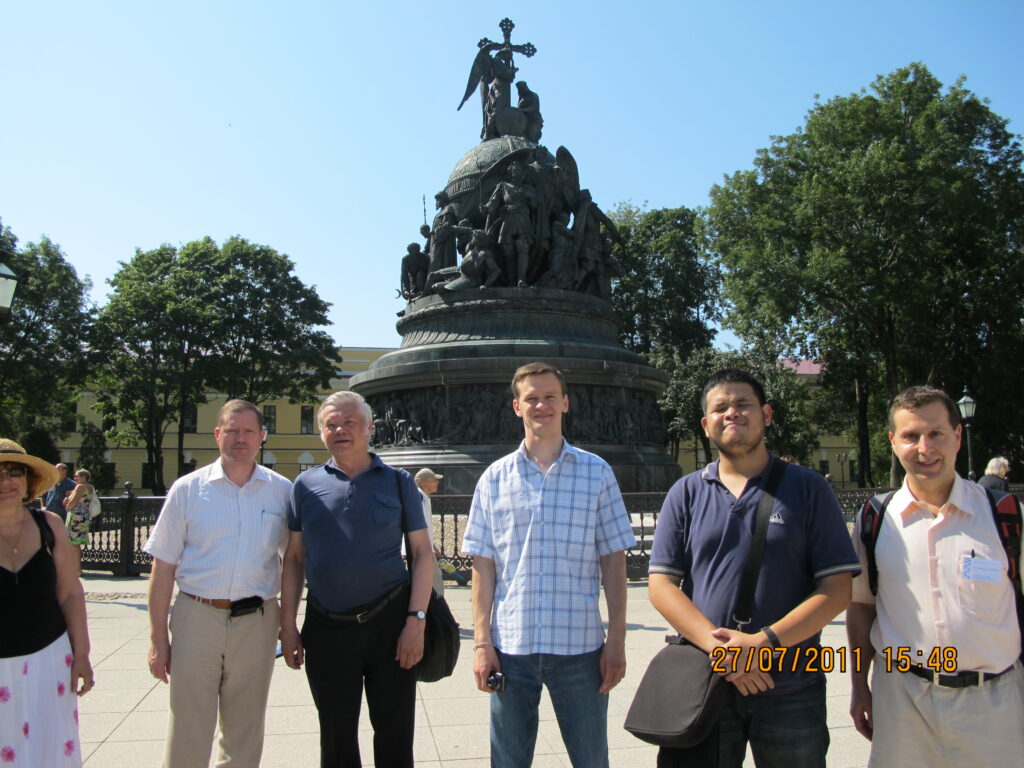
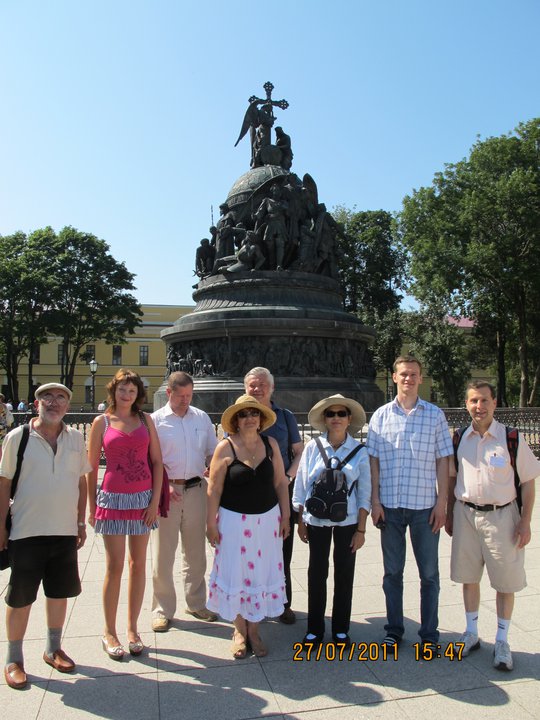
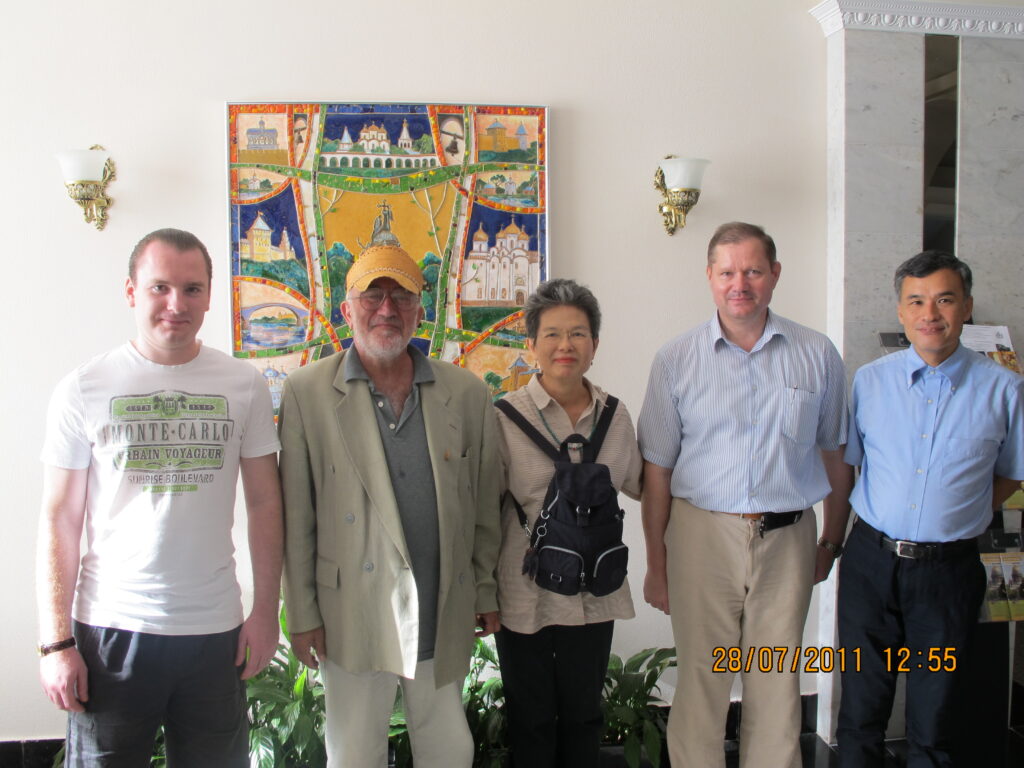
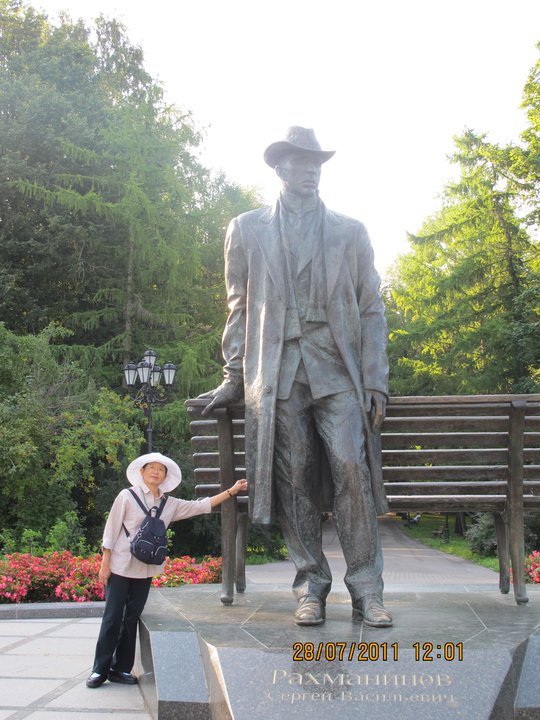
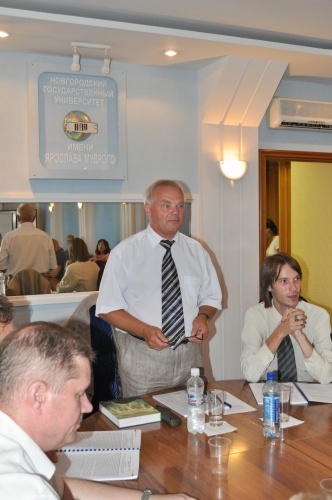
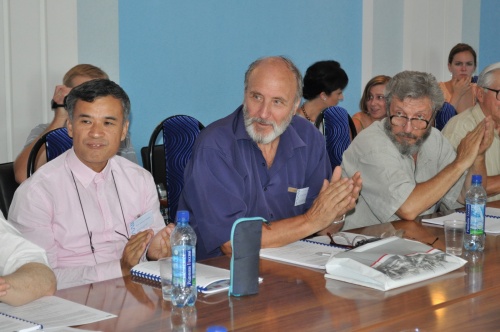

Photos by Prof. Kwon Jong YOO

